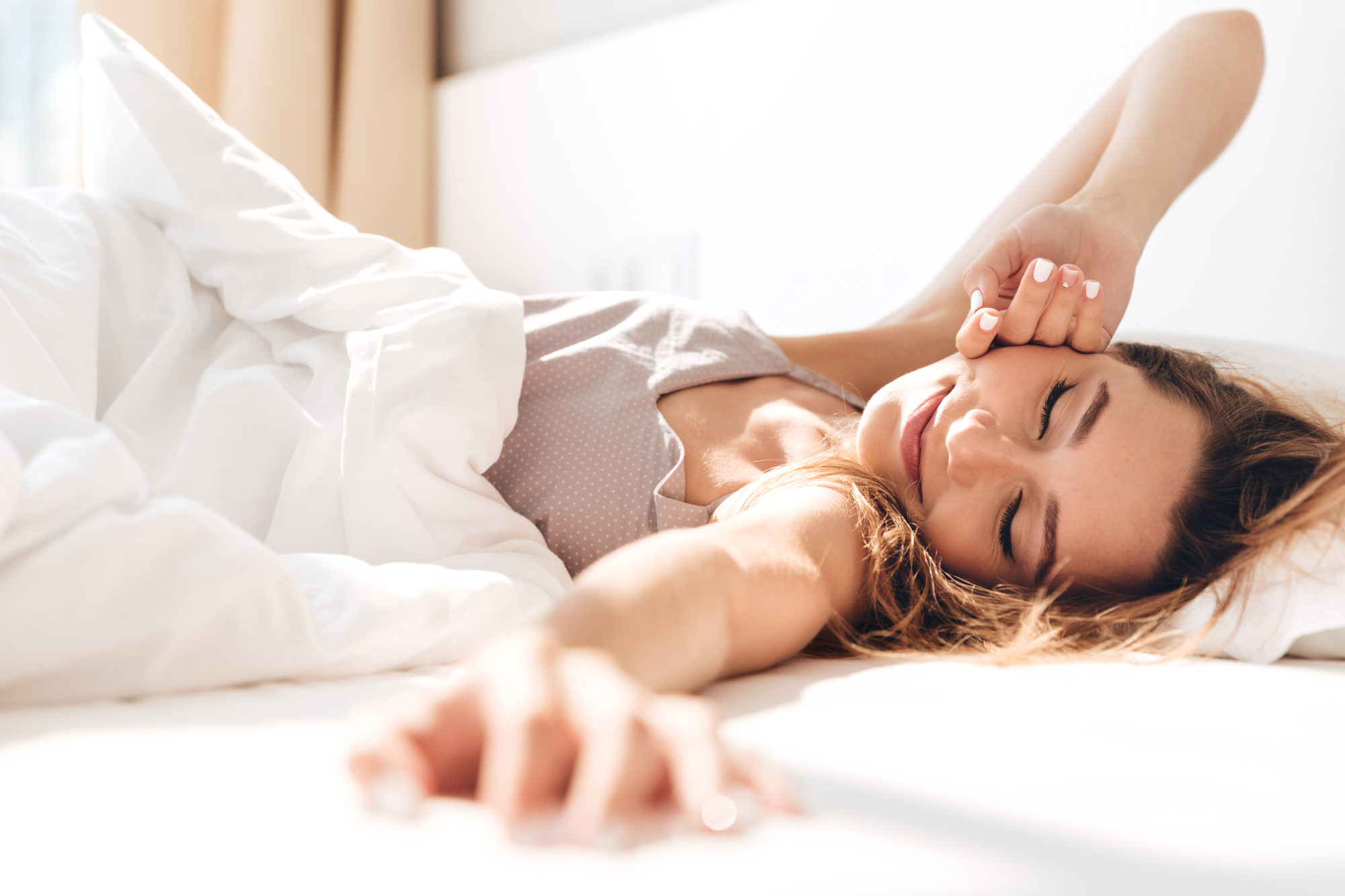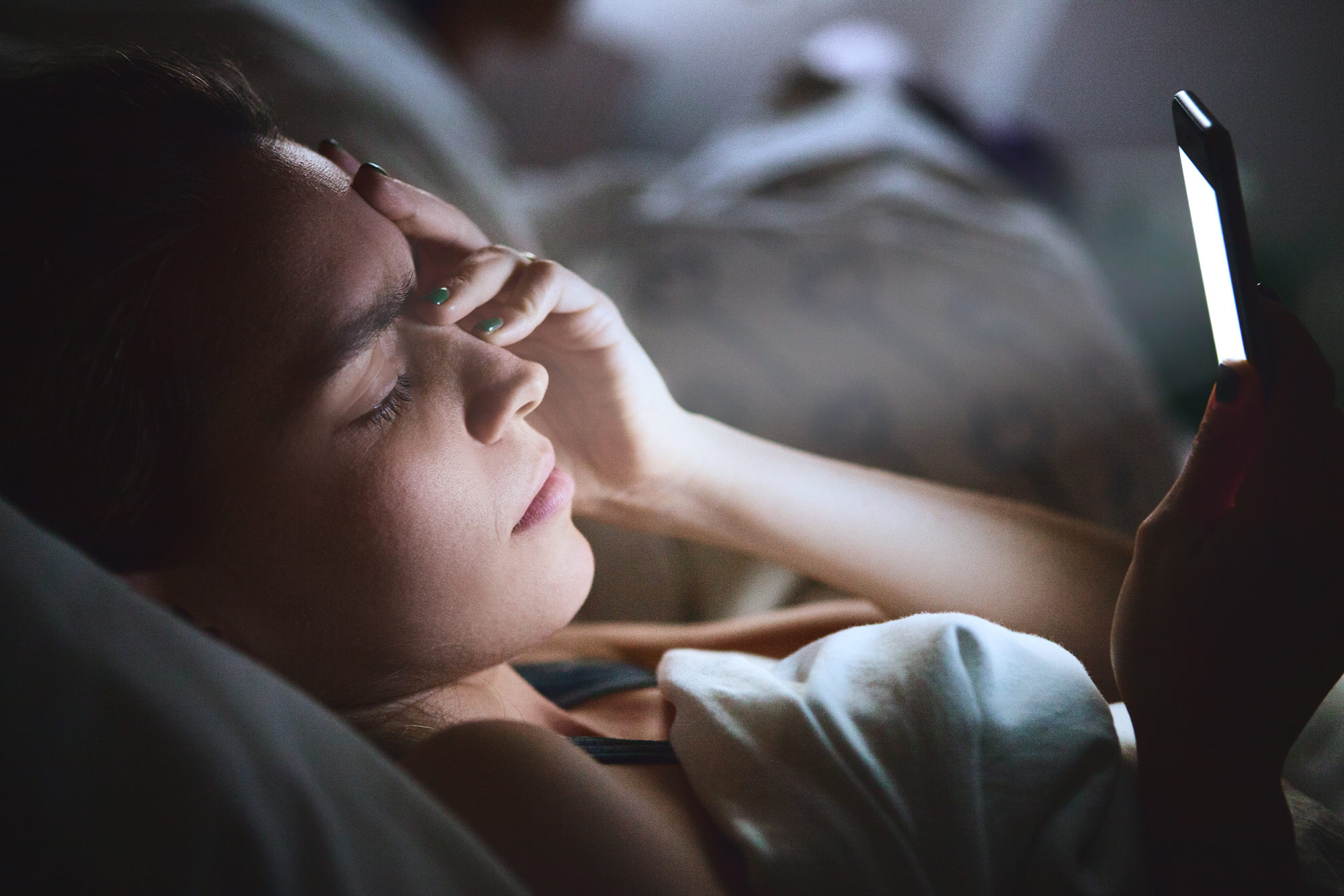Posted on March 10, 2021
If you’ve found yourself struggling to get a good night’s sleep during the past 12 months, you are not alone. A perfect storm of being isolated from loved ones, adapting to working from home, financial stress and the fear of getting sick has caused many of us to suffer from disrupted sleep. In fact, a study has shown that the number of people in the UK suffering worry-related sleep loss rose from one in six to one in four following the introduction of COVID-19 restrictions on 23rd March 2020.
As the coronavirus pandemic continues, it is more important than ever to look after your physical and mental wellbeing – and sleep is a key part of this. Sleep gives your body time to rest and repair, which is essential when it comes to maintaining a strong immune system2. Starting the day well-rested will also improve your concentration and mood, making it easier to cope with the demands of lockdown life. A lack of sleep can also increase your risk of certain diseases like high blood pressure, diabetes and coronary heart disease, so if your sleep has been suffering, it’s time to take action2.
Tips for a peaceful night’s sleep
Before you head to bed tonight, get set for a more restful night’s sleep by following our tips to help you drift off with ease. And you won’t have to count a single sheep.
Stick to a routine
Many of us were forced to alter our regular daily routine at the beginning of the pandemic and this may have had an impact on your sleep. Working longer hours at home or getting up later can disrupt your sleep pattern, so it’s important to try and stick to a routine.
According to the National Sleep Foundation, adults aged 26-64 years old should get between seven to nine hours of sleep a night. The time you need to go to sleep depends on the time your alarm is set for – but the key thing is to try to go to sleep and wake up at the same time each day. Regular sleeping hours will help your brain and body clock know when it’s time to wind down.
Unwind before bed
There are lots of ways to prepare your mind and body for sleep. Relaxing with a warm bath or a good book will help you get ready to rest, while light yoga stretches can help relax your muscles before bed.
Tempting as it might be to catch up on emails or social media, avoid screens if you want to sleep well. Exposure to the blue light from phone and tablet screens suppresses the secretion of melatonin, which is often referred to as the sleep hormone3. Melatonin production promotes healthy sleep and increases as the evening gets darker, so for a better night’s sleep, don’t bring bright screens to bed.
Create a better bedroom
The environment you sleep in can have a big impact on the quality of your sleep. With more of us working from home with limited space, many of our bedrooms are now doubling-up as home offices. If you do have to work in your sleeping space, try to remove your computer or other gadgets before you go to sleep. Anything that reminds you of work is likely to make it more difficult to drift off.
Invest in thick curtains to ensure that your room is dark and keep the temperature between 18°C and 24°C. If your sleep is disturbed by noise outside, try using earplugs to make bedtime more peaceful.
Try natural remedies
If you still find the stresses of the day causing you sleepless nights, you may want to consider natural remedies like putting a couple of lavender oil drops on your pillow. Lavender contributes to optimal relaxation4.
References
1. Falkingham, J., Evandrou,M., Qin, M. and Vlachantoni, A. (2020). “Sleepless in Lockdown”: unpacking differences in sleep loss during the coronavirus pandemic in the UK. British Medical Journal. https://www.medrxiv.org/content/10.1101/2020.07.19.20157255v1
2. Besedovsky, L., Lange, T., and Born, J. (2012). Sleep and immune function. Pflugers Arch. 463 (1), 121 – 137.
https://www.ncbi.nlm.nih.gov/pmc/articles/PMC3256323/
3. Harvard Health. (2012). Blue light has a dark side. Available: https://www.health.harvard.edu/staying-healthy/blue-light-has-a-dark-side. Last accessed 5th March 2021.
4. Shiinaa, Y., Funabashi, N., Lee, K. et al. (2008). Relaxation effects of lavender aromatherapy improve coronary flow velocity reserve in healthy men evaluated by transthoracic Doppler echocardiography. International Journal of Cardiology. 129 (2), 193-197.
https://www.sciencedirect.com/science/article/abs/pii/S0167527307012612




